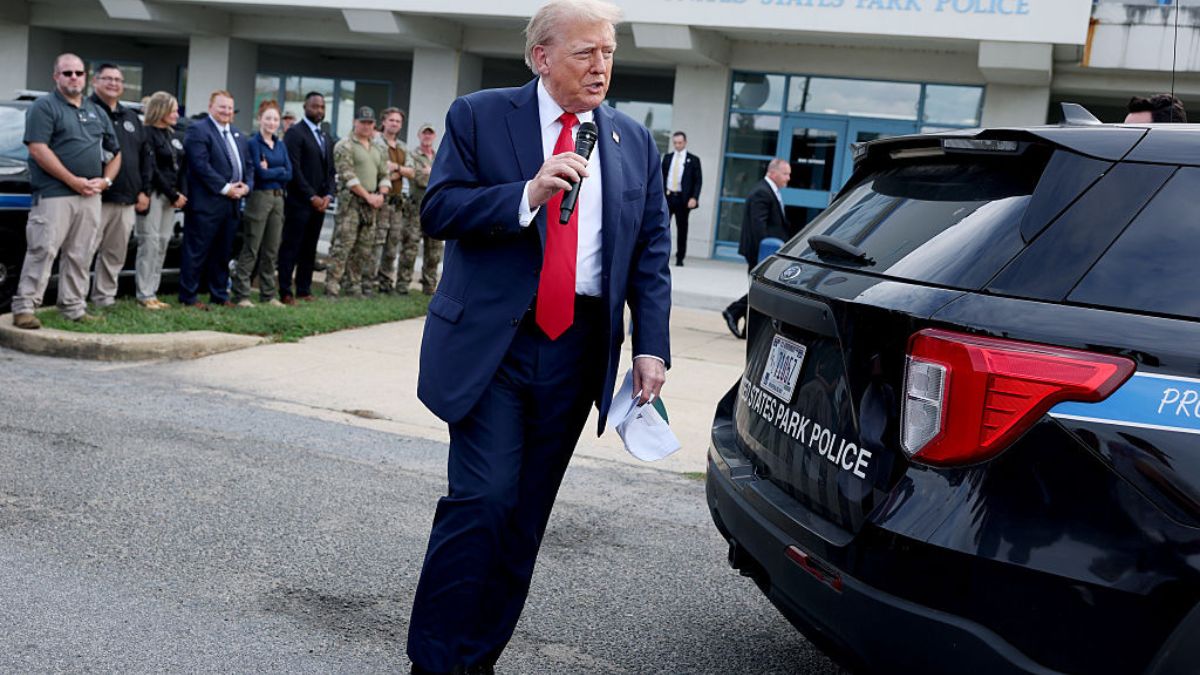
The European Union has pushed back against President Donald Trump‘s latest threat to impose tariffs on countries with digital regulations. On Monday, Trump warned on Truth Social that he would hit nations with “substantial additional tariffs” and restrict U.S. chip exports if they don’t remove what he calls discriminatory digital rules targeting American tech companies.
Trump’s post specifically threatened countries with digital taxes, legislation, rules, or regulations, saying they “are all designed to harm, or discriminate against, American Technology.” He added that such policies “give a complete pass to China’s largest Tech Companies” and demanded immediate action. The president warned that America and American tech companies “are neither the ‘piggy bank’ nor the ‘doormat’ of the World any longer.”
According to Politico, the European Commission quickly defended its position on Tuesday, with spokesperson Paula Pinho stating that “It is the sovereign right of the EU and its member states to regulate economic activities on our territory, which are consistent with our democratic values.” This firm response shows the EU has no plans to back down from its digital oversight laws despite Trump’s economic threats.
What’s really at stake in this tech regulation battle
The main target of Trump’s anger appears to be the EU’s Digital Services Act (DSA), which came into full effect in February 2024. The law requires major online platforms with more than 45 million EU users to assess and limit risks like misinformation and harm to minors. Companies like Facebook, Instagram, TikTok, and Google’s services all fall under these rules.
US officials have been working behind the scenes to pressure European allies to change their approach. Secretary of State Marco Rubio has ordered American diplomats in Europe to lobby against the DSA, with some reports suggesting the Trump administration is even considering sanctions on EU officials responsible for implementing the law. This represents a major escalation in what was already a tense relationship over tech policy.
The European Commission replies to Trump's threat to impose tariffs over tech laws.
— Jorge Liboreiro (@JorgeLiboreiro) August 26, 2025
"It's the sovereign right of the EU and its member states to regulate economic activities in our territory which are consistent with our democratic values."
"These are separate questions."
The dispute highlights two very different views of how the internet should be governed. Washington sees the DSA as a way to unfairly target successful American companies and limit free speech online. The EU, however, argues it’s simply protecting its citizens from harmful content and ensuring fair competition in digital markets. The bloc has positioned itself as setting global standards for digital governance, a strategy known as the “Brussels effect.” Trump’s chaotic tariff policies have already caused significant economic disruption, and this latest threat could further damage relationships with key allies. The timing is particularly concerning as it puts at risk a trade deal signed between the US and EU in July that was meant to prevent an all-out trade war.
The stakes go beyond just tariffs. Trump’s threat to restrict exports of “highly protected technology and chips” could have major effects on European industries far beyond tech companies. Such restrictions could disrupt supply chains for everything from car manufacturing to consumer electronics. This escalation shows Trump is willing to use America’s dominance in the semiconductor industry as a weapon against even close allies. Previous tariff battles have shown how quickly trade relationships can deteriorate when Trump feels his demands aren’t being met.







